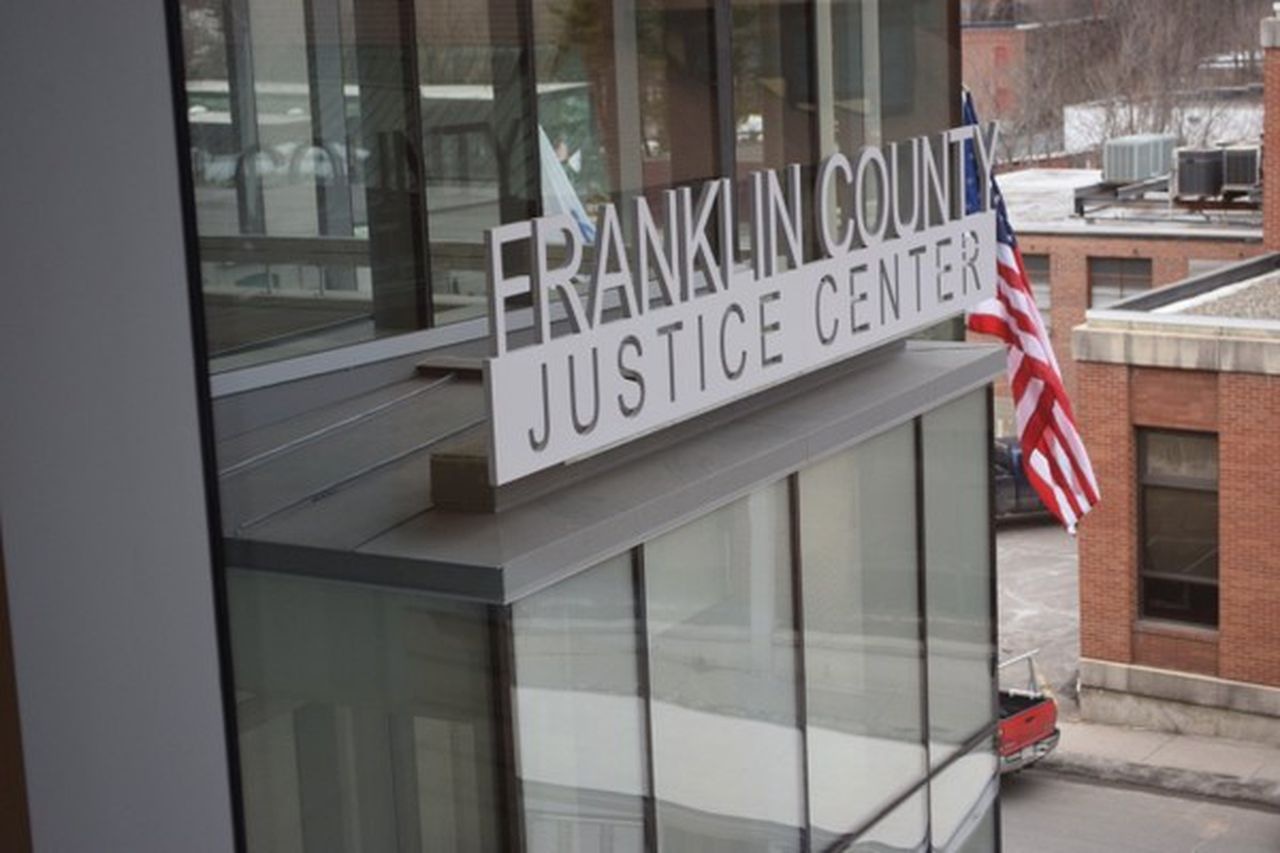When Gov. Maura Healey said people over 25 who have no degree could go to community college for free, Chicopee School Committee member Tim Wagner thought: “What about us?”
The 20-year-old, who graduated this spring from Springfield Technical Community College with an associate’s degree in computer information technology, has seen others his age struggle to stay in school because they don’t have the money.
“People I talked to who are not in the best situation financially tried to make college work,” he said. “Many are attending part-time because it is the only way they can do it.”
Now, Wagner is working to get a coalition of school committees and others to join forces and petition Healey to extend the MassReconnect program to include those under 25. He will ask his own School Committee to endorse the plan Wednesday.
Healey is willing to at least discuss proposals like Wagner’s, said Karissa Hand, spokeswoman for the governor.
“Our administration is proud to have made community college free for students aged 25 and over, and we look forward to continued discussions about how to make community college more accessible for all Massachusetts residents,” she said.
He called MassReconnect a “great first step,” but said it is wrong to ignore his generation, which faced the challenge of learning during the COVID-19 pandemic and is entering adulthood at a time of high inflation and soaring housing prices.
“(My generation) goes to college at a much lower rate than millennials. We look at the generations before us and say, ‘Why do we want thousands of dollars of college debt?’” he said. “But at the same time, the value of a college degree doesn’t go down.”
Wagner said he was fortunate. He got help from his parents. A scholarship in his first year defrayed some costs and he was still on his family’s health insurance plan, so that cut his expenses. Although Springfield Technical Community College is among the least-expensive ways to earn a degree, the roughly $14,000 price of an associate’s degree would have been daunting if he faced it alone.
Wagner said he is an example of how a college degree can make a difference. After graduating he was able to turn an internship with the information resources technology department at Big Y into a full-time job that pays a living wage.

Tim Wagner
If the Chicopee School Committee votes in favor of his idea, he will approach school committees in the four other Western Massachusetts “Gateway” cities of Holyoke, Springfield, Westfield and Pittsfield and ask them for support.
From there, he will decide if he should submit the proposal to the governor’s office or try to work with the remaining 22 Gateway cities — former industrial cities that have a larger population of low-income residents.
It’s not the only proposal to be submitted.
State Sen. Jo Comerford, D-Northampton, recently filed legislation that would create a debt-free public higher education program for all Massachusetts residents this fiscal year with an investment of $2,000 per “high-need” student. The proposal would cost about $790 million over seven years.
Colleges back idea
Wagner argues that other states offer free community college to recent high school graduates and Massachusetts could use the template from some of those programs. For example, Connecticut covers any costs that federal Pell Grants and others don’t, so a student can go to community college for free.
Massachusetts could use some of the $20 million set aside for MassReconnect program to get it started, he said.
Officials for Springfield Technical Community College and Holyoke Community College said they are on board with the idea. They said they could handle an influx of students who may choose to come to their institutions instead of another college, if it means a loan-free way to start their college careers.
“We are thrilled with any and all attention for community colleges and the types of pathways people can take to education,” said John B. Cook, president of Springfield Technical Community College.
Many businesses are looking for college-trained people to fill vacant positions. At the same time, students want to go to college. But so many recent high school graduates, especially those who are first-generation, low-income and from families who may not be fluent in English, see the cost of tuition and don’t even consider college, Cook said.
A completely free education would boost the workforce as well as give young people more opportunities, Cook said.
Already, about half the students at STCC are eligible for federal Pell grants. But others who are low-income never get in the door of the college because they don’t know where to start, he said.
“We already do a lot with first-generation and low-income students and students of color. This means we will do more of it,” Cook said. “It opens the door even further if people don’t have to worry about tuition.”
Paperwork barriers
While many low-income students can already attend Holyoke Community College at nearly no cost through grants and scholarships, there is an overwhelming amount of paperwork to complete to apply for those.
Holyoke Community College officials will help any student who walks through the door, but some 18- and 19-year-olds give up before they even start, said Mark Hudgik, interim dean of strategic recruitment initiatives, admissions and financial aid.
For many others who live in a family with a moderate income, financial aid doesn’t pay everything and gaps between the grants they receive and tuition will leave students in debt — or force them to leave because they have to work to support themselves and their families, he said.
In addition, racking up debt in community college means some students will not transfer to a four-year college once they graduate, even though there are many incentives, including tuition breaks and automatic admission to make it seamless for them to get a bachelor’s degree, Hudgik said.
“I’m in favor of removing roadblocks that keep people out of college whether they are real or perceived, and the cost is the biggest roadblock,” Hudgik said.
While free college would likely boost enrollment on campus, one of the benefits of community colleges is they are designed to be flexible. If, for example, a large number of students interested in a particular major register, the college is ready to add professors and make space.
In 2009-2010, for example, there was a surge in enrollment because of the recession and HCC adapted. The college offered more classes at different times, such as in the evening, did some online learning and modified classroom spaces so they could fit more students, he said.
Support in Springfield
Springfield School Committee member Christopher Collins said if Wagner forwards the petition to his board, he will be happy to sign it and is sure it will get support from other members.
“I think it would be terrific for Springfield kids,” he said. “I believe in our state universities and if they do two years at community college and then go on, there is a chance they will be better able to afford it and they will be better prepared.”
Free tuition would definitely give Springfield students a leg up after graduation and mean some pursue higher education when they would have otherwise decided against it, due to the cost, he said.
Collins said it could also benefit students who have a learning disability. Some will stay in school until they are 22 and then just find a menial job. Many are capable of continuing their education, but if they have to wait until they are 25 to attend class for free, they never will.
“I would definitely recommend this to the Springfield School Committee,” he said.
Holyoke School Committee vice chairwoman Mildred Lefebvre said she, too, would bring it to her fellow members for discussion.
“Personally, I think it is a great idea. I would like to hear more about it,” she said.
Westfield schools already offer dual enrollment programs in partnership with Westfield State University that allows high school students to earn as much as a semester worth of college credits for free before they graduate. The program introduces students to college-level work in their junior year when they can take up to two “Stretch” classes that are taught jointly by a high school teacher and a college professor.
Some 250 Westfield seniors a year then take classes at the university for free. The schools also provide a shuttle bus, so transportation isn’t a barrier, said Superintendent Stefan Czaporowski.
Czaporowski said when he started as superintendent, few graduates from Westfield Technical Academy attended college. That had increased to almost half in recent years.
“But now it has dipped to 40%. I think the cost is a factor,” he said.
He said he thinks it makes sense to bring the idea to Gateway cities first, since there are so many students who are low- and middle-income who may have been able to afford college 20 years ago, but tuition has increased so much they can no longer do so without amassing debt.
“I would support any initiative or program that makes college more accessible, especially because college is so cost-prohibitive now,” Czaporowski said.





